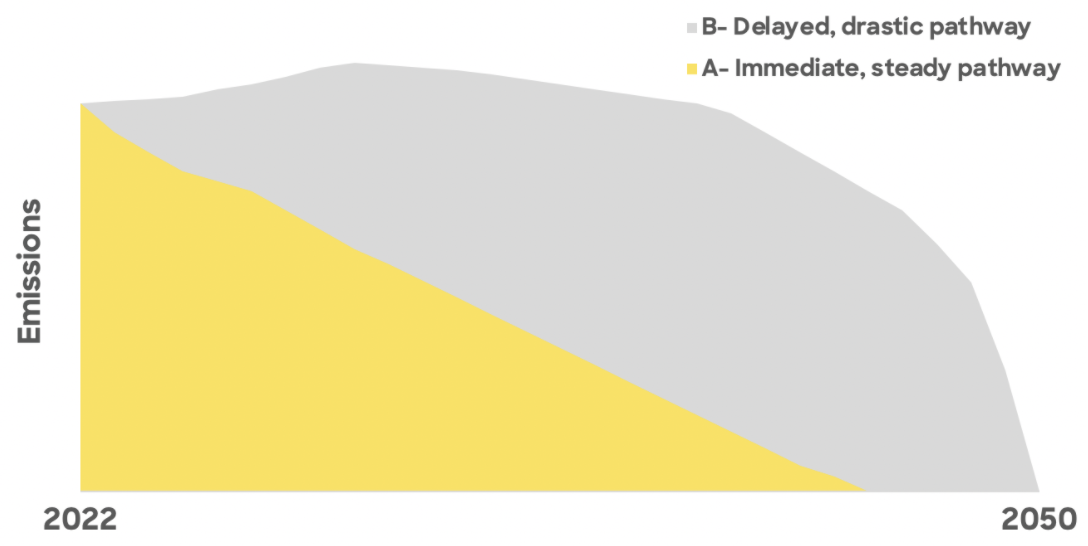If you aren’t reducing your business’ carbon footprint today, you are the problem

We are in a climate crisis, and humanity doesn’t have the carbon removal technology to prevent it getting worse. The only option we have is to reduce our carbon footprint as much as we can.
Not all of your carbon footprint can be avoided, but businesses that aren’t doing their best to reduce their footprint are actively harming the environment.
Preventative offsetting is not a serious solution
Think of supporting offsetting projects without reducing emissions like donating to an anti-violence charity only to then assault a stranger on the street on the way back home.
The ultimate impact of your donation depends on a lot of things and is a lot less certain than the bad thing that you yourself actually directly did.
And with preventative offsetting it's even trickier to prove that your donation actually has the impact you think it does.
Don’t misunderstand this - it’s better than not donating, but basing your sustainability approach on offsetting alone is superficial. The logic just doesn't work, let alone the maths.
What’s more, the world’s offsetting capacity is smaller than its emissions, meaning that not every company could take this approach even if they wanted to.
When you offset through tree planting, there are a few things that could undermine the impact. Would the tree have been planted anyway? Have they double counted it? What if it is deforested? What if it burns down? How long will it take to have impact?
Direct carbon removal is neither affordable nor scalable
There are various nascent technologies such as bio-sequestration and direct air capture which enable CO2 to be directly removed from the atmosphere, as opposed to merely preventing emissions like many offsetting projects.
While these do offer hope for the future, they are currently very expensive and not scalable.
Companies such as Stripe have taken the initiative to invest in these projects to reduce unit cost over the long-term, but there's no guarantee that advancement will come, let alone come soon enough to stop irreversible damage from the climate crisis.
The compound effect means that the longer you wait to reduce your CO2 footprint, the worse it gets
Making a repeatable sustainable decision today that reduces your monthly footprint by 100kg of CO2 will result in 33,600kg of avoided emissions by 2050.
Here's what that compound effect looks like on a graph:

Taking a delayed, drastic reduction in emissions (journey B) an immediate, steady reduction in emissions (journey B) will result in a footprint between now and 2050 that is 2.5 times greater!
The longer that companies delay efforts to reduce their footprint, the greater the opportunity cost of not acting sooner.
Minimising your business’ carbon footprint is a complicated journey: Waiting until it’s a legal requirement will not shorten the time it takes to reduce your footprint.
All this means that if your company hasn’t yet started the journey to net zero through reducing emissions then you are actively harming the planet and sadly deciding to do nothing meaningful about it.

